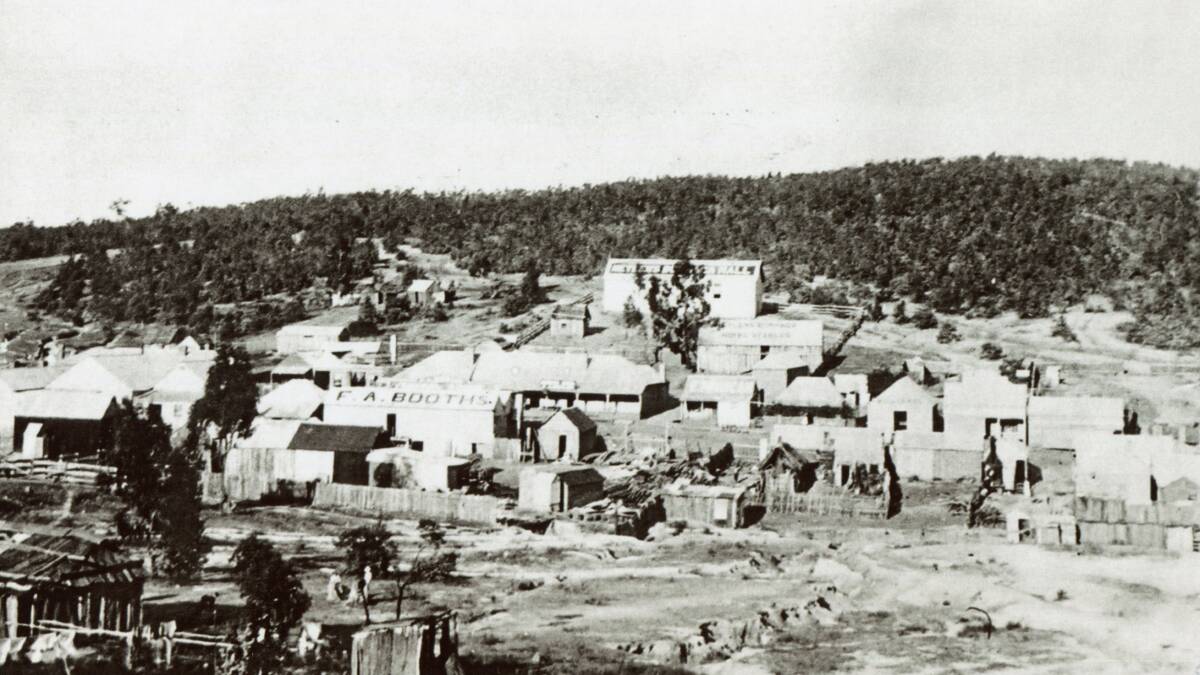
THIS week's image is of Burraga. This is the final part of a three-part series concerning Mr Rutter's Fast Coaches that travelled to Burraga from Bathurst three days a week.
Gerhard A. Stockfeld, general superintendent of Lloyd's Copper Co, Limited in Burraga, continues his letter to the newspaper: "The rest of the road is good in wet weather, and not more dusty in dry weather than the usual run of macadamised roads."
Subscribe now for unlimited access.
$0/
(min cost $0)
or signup to continue reading
It was hoped that the protest and commonsense, practical suggestions made by Mr Stockfeld would commend themselves to the general public, and that, for once, the officials responsible would promptly consider public convenience, and deal with the worst parts of the road first.
A number of patrons who attended a fancy dress ball that took place in Gaiety Hall in Burraga in 1903 arrived by Mr Rutter's coach from Bathurst. The evening proved a complete success.
READ ALSO:
The operations at the Burraga mine were constantly changing as there were a large number of shutdowns that were caused by low copper prices in the market and other issues.
One time was in April 1908, when the mine put off the workers due to the insufficiency of fuel logs for the boilers. At the time, there were strong hopes at Burraga that the company would relieve the consequent unemployment by going on with the proposed construction of the tram line during the winter months.
A public meeting was held in the Rockley School of Arts during the afternoon of September 2, 1908 in connection with the proposed government railway from Bathurst to Burraga via Rockley. Citizens of Burraga, Rockley, Mount David and Bathurst all attended.
They decided to petition the State Government to expedite the branch line project.
A line to Burraga was started but never reached Burraga.
READ ALSO: Putting the pieces in place at Burraga
By February 1910, Mr W.P. Rutter had established and owned a saleyard at Rockley. Here he had a livestock sale that proved to be one of the most successful sales ever held at Rockley. Buyers were present from Bathurst, Cowra, O'Connell, Oberon, Newbridge, Burraga and other places.
Competition was brisk, with light bullocks averaging £5, cows bringing £4 6s, store bullocks up to £4 3s, steers £3 8s, heifers £2 3s and poddies 3s to 35s.
There were 1000 sheep yarded. Fat wethers averaged 8/6 and mixed sheep brought 5/6 each.
A fine lot of young draught horses were yarded. One mare, the property of Frank Press, was sold for £40 10/- to Mr S. McKibbin of O'Connell. Light active draught horses sold at £18 to £27 10s.
It is believed that Mr Rutter sold his coach around 1910, probably realising that the advent of the motor car, as well as the proposed railway line, would see the demise of most horse-drawn passenger coaches.
By December 1918, Mr Rutter was the licensee of the Royal Hotel in Oberon.
Road conditions and steepness still remained problems. A highly sensational accident involving the Burraga coach occurred at The Mount, 12 miles from Rockley, on the afternoon of Tuesday, October 1, 1912. As a result, Thomas Patterson, 65, an old age pensioner of Burraga, was killed, while Christopher Douglas, the driver, married with five children, living in Howick Street, and Jack Sharwood, 27, single of Burraga, were seriously injured.
The coach left Rockley late in the day with the following passengers: Messrs. Thomas Jones, of Wattle Park; H. McGuire, of McGuire Bros., Burraga; H. Curran, commercial traveller for Curran Bros., tailors, Bathurst; H. Robin, a drover; T. Patterson, and John Sharwood.
On reaching the summit of The Mount, one of the horse leaders jerked his winkers off through coming in contact with the pole.
Curran, who was on the off side on the box seat with Douglas and Sharwood, alighted with Robin to adjust the winkers and the horse took fright and made a leap forward. Curran and Robin stepped aside just in time.

